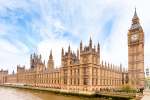I rise to support the Cultural Objects (Protection from Seizure) Bill, which I know will be of great reassurance to museums and galleries in the Black Country and the wider west midlands, particularly because I spent much of my youth and adult life in museums and galleries. They are a joy. That is what I used to do: we did not have the internet or those exciting things that absorb us now, attached to a phone. We used to get out there and see incredible exhibitions. My hon. Friend Julie Marson mentioned the blue badge, and I may look into that myself—it sounds very interesting.
The coronavirus pandemic underscores why this legislation is needed. Back in March 2020, no one could have foreseen the disruption to international travel that would occur. With nearly all overseas flights suspended, objects on loan to British museums could not be returned to their country of origin. As a result, the artefacts were at risk of being left unprotected by the current 12-month period of protection from seizure. By changing existing legislation, this Bill will help to mitigate those unforeseen disruptions to the timely return of artefacts on loan from lenders abroad.
However, the Bill is more than a contingency for unforeseen events: it strengthens the partnerships between our museums and international institutions by providing a greater degree of certainty and building trust. Many foreign lenders insist on immunity from seizure when lending artefacts, so the Bill is crucial to ensuring that international owners have the confidence to lend culturally significant objects to British institutions, in the knowledge that they will not be at risk of inadvertently being left unprotected.
Museums and galleries across the country and in the west midlands stage incredible exhibitions, many of them only made possible by the borrowing of objects from international lenders. These international exhibitions are vital to both enhancing their existing collections, and attracting new audiences. Other hon. Members have stolen my thunder, because I was going to mention Tutankhamun myself. My hon. Friend Claire Coutinho mentioned the 2019 exhibition, which I believe marked the 100-year anniversary and was the last visit. Some of us remember the 1972 exhibition, which I remember as a child of the time—my hon. Friend Julie Marson mentioned that, and I think it quite unbelievable that she can remember it. It was absolutely thrilling, the excitement of it all, and there were record crowds of 1.7 million people. I remember the black and white pictures of the queues going round—I think we used the word Egytpomania at the time—and it was so exciting. It was an exhibition of the beautiful painted wood torso of the young king, exquisite domestic objects, and the glint of gold everywhere. I seem to remember that exhibition coming to Birmingham, which is where I was born and bred, but when I did a bit of research I could not find it. Nevertheless, I believe it moved around slightly. Imagine if that incredible exhibition had been blighted by a pandemic.
The Bill provides a greater degree of certainty, and makes it easier for British museums and galleries to plan their exhibitions. It will help to ensure that the UK continues to be able stage international exhibitions, with the finest artefacts from around the globe. Many such exhibitions are made possible only through the borrowing of objects from international lenders.
I now want to tell the tale of an artefact of great distinction and notoriety that resided in the midlands: an 8 foot tall, 890 kg fibreglass statue commissioned for display in Birmingham in 1972, as part of the sculpture for public places scheme in partnership with the Arts Council of Great Britain. It was commissioned to make something city-oriented, and the sculptor chose King Kong—I do not know whether my hon. Friend Marco Longhi remembers the King Kong that resided in Birmingham. I do not want hon. Members to do a quick Google now, as I will be told off by Mr Speaker, but when they leave the Chamber, they can see the incredible artefact that was in Birmingham and supposed to represent it. It was down to the sculptor’s association with New York City, and he created it for their own petty reasons. It was displayed in the heart of the city for many years—imagine if it was actually seized! It was something of a notoriety, and I loved it as a child growing up. We used to drive round to look at it. Hon. Members will be pleased to hear that King Kong lives on, and is now retired in Penrith.
I welcome the Bill for non-UK artefacts, because the ability for museums and galleries to stage international exhibitions is vital for the tourism sector in the UK. Tourism is a vital part of the local economy in Stourbridge, and in the wider Borough of Dudley. More than £534 million was spent by visitors to the area over 7 million trips, supporting more than 8,000 jobs. The west midlands is home to plenty of fantastic museums and galleries, such as the Glasshouse Heritage Centre in Stourbridge’s historic glass quarter. That heritage attraction is a real gem in my constituency. It is run by a dedicated team of staff and volunteers, and it hosts a wide array of artefacts that tell the incredible 400-year story of glassmaking in Stourbridge. I know that the Bill will be welcome by institutions such as the Glasshouse Heritage Centre, as the arts sector makes a strong recovery after the pandemic. The Bill will be of great reassurance to museums and galleries in my region, and the wider west midlands. I thank my right hon. Friend Mel Stride for introducing the Bill, and long live King Kong.

